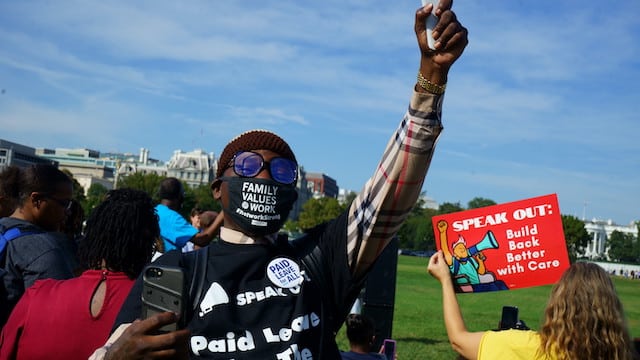Sick leave for more than 1.65 million New Yorkers being blocked by council Speaker Christine Quinn

A bill to give five days of paid sick leave a year to workers at businesses with five or more employees has enough support to pass New York City’s City Council and withstand a veto from Mayor Michael Bloomberg—but Speaker Christine Quinn isn’t willing to let the bill have a vote. Now, in advance of her run for mayor, Quinn is coming under pressure from activists to hold that vote.Quinn, Andrew Cuomo-like, says she supports earned sick leave in principle, but doesn’t like this bill and is concerned about small businesses in a difficult economy. Also she is trying to make nice with business interests so they’ll support, or at least not too actively oppose, her mayoral campaign. So she’s standing in the way of sick leave for many of the 1.65 million to 1.85 millionNew Yorkers, including around two-thirds of food service workers and more than 40 percent of people working with children and the elderly, who are currently forced to choose between going to work while sick or losing pay and even risking their jobs by staying home.
This has costs for Quinn, with Gloria Steinem, two former Manhattan Borough presidents, a former public advocate, the leaders of Gay Men’s Health Crisis and the American Federation of Teachers, and notable figures in arts and entertainment among those who have signed a letter calling on her to allow a vote.
Ms. Steinem’s outspoken position seems likely to put Ms. Quinn in a particularly uncomfortable position. Ms. Steinem has been a strong supporter of Ms. Quinn’s mayoral ambitions, introducing her at a 500-person fund-raiser last fall.But in her e-mail, Ms. Steinem said that before she gave her support to Ms. Quinn, she had told her that it was conditional on Ms. Quinn’s bringing the paid-sick-day bill to a vote.
While Quinn says she’s concerned about the economic outcomes of such a bill, the Institute for Women’s Policy Research estimates that:
If New York City workers without paid sick days were to gain access, about 48,000 emergency department visits would be prevented each year, reducing health care costs by $39.5 million annually, including $28.4 million in savings to public health insurance systems. The New York City government would save $5.0 million annually due to reduced Medicaid expenditures.
The state of Connecticut and major cities such as Seattle, San Francisco and Washington, D.C. have passed paid sick leave laws.